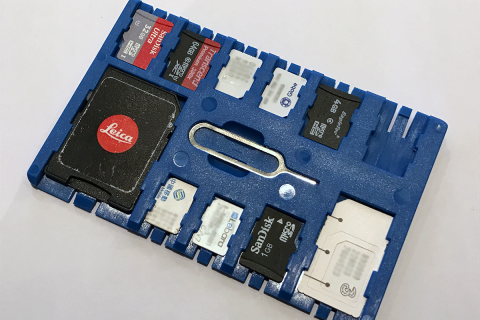Ubuntu、日本語でウブンツと言っていいのだろうか
Ubuntuを始めた(?少なくとも経営の中心人物ではある。そこまで深くは調べてないです。)Mark Shuttleworthが最近面白いアナンスメントを彼のブログで発表した。
発表とまでは無いかな?
http://www.markshuttleworth.com/
用は、マイクロソフトがリナックスなどが数百のマイクロソフトのライセンスの侵害を行っているとのことで訴えるだの訴えないだのウダウダ言っている事について。マークは「Ubuntuが近々マイクロソフトからの要求を呑む」といったデマを正式に否定した。
こんな状況見ると「1+1=2というのは、私たちがライセンスを取ったのだ!」とかまじめに言い出して来そうでアホラシ。こんな状況でいいのかなぁ?
ライセンスに関してはこれに限らずフレーズとかも。マクドナルドが「I’m lovin it!」というフレーズに関してライセンス取っているが、「I love it!」 と同じような感じで使ったらマクドナルドが訴えてくるでしょう。
ライセンスは縄と同じと思う。鳥(アイデア)に縄をつけて自分の身の回りを飛ばせるのさておいて、縄でがんじがらめにしてしまったら飛ぶものも飛べなくなってしまう(使えるものも使えなくなってしまう)気が。
Appendix….
http://arstechnica.com/news.ars/post/20070617-ubuntu-founder-defuses-rumors-of-impending-microsoft-deal.html
Ubuntu founder defuses rumors of impending Microsoft deal
By Ryan Paul | Published: June 17, 2007 – 11:37PM CTIn an announcement made in a personal blog entry, Mark Shuttleworth—Ubuntu patron and benevolent dictator for life—puts an authoritative end to speculation that Canonical or the Ubuntu project could be considering a patent agreement with Microsoft.
Although Shuttleworth has publicly condemned Microsoft’s controversial deal with Novell on several occasions in the past, some have speculated that Canonical or Ubuntu might be the next to sign on. Novell, Linspire, and Xandros have all established patent covenants with Microsoft that essentially constitute mutual pacts not to sue for patent infringement.
Shuttleworth’s blog entry attempts to completely defuse the rumors. “We have declined to discuss any agreement with Microsoft under the threat of unspecified patent infringements,” says Shuttleworth. “Allegations of ‘infringement of unspecified patents’ carry no weight whatsoever. We don’t think they have any legal merit, and they are no incentive for us to work with Microsoft on any of the wonderful things we could do together. A promise by Microsoft not to sue for infringement of unspecified patents has no value at all and is not worth paying for.”
Although Shuttleworth completely rejects the possibility of a patent pledge, he seems genuinely interested in collaborating with Microsoft to improve interoperability. “I have no objections to working with Microsoft in ways that further the cause of free software,” comments Shuttleworth, “and I don’t rule out any collaboration with them, in the event that they adopt a position of constructive engagement with the free software community.”
Shuttleworth believes that Microsoft’s recent actions are hostile to open-source software, but he thinks that companies can change for the better. Citing past collaboration with Sun, Shuttleworth points out the potential for mutually beneficial relationships with companies that have previously been adversaries. “In the past, we have surprised people with announcements of collaboration with companies like Sun, that have at one time or another been hostile to free software. I do believe that companies change their position, as they get new leadership and new management,” says Shuttleworth.
Microsoft claims that Linux and other assorted open-source software technologies infringe on over 200 of their patents, but the company has repeatedly declined to substantiate the claim or disclose specific details regarding the alleged infringement. Some in the open-source software community, including Shuttleworth, consider Microsoft’s patent covenants antithetical to the underlying principles of unencumbered redistribution inherent to the open-source software movement. Some also argue that the patent covenants are detrimental to the Linux community because they could potentially inflate the credibility of Microsoft’s unsubstantiated patents claims.
The ambiguity of certain exceptions in the patent covenant makes the value of such an agreement highly questionable, and it is likely that the Linux distributors who have entered such agreements did so to increase their visibility in the enterprise Linux market and to attain other incentives offered by Microsoft as part of the deal, like co-marketing resources and access to certain patent-encumbered Microsoft technologies.
Ubuntu is the rising star of Linux distributions and is favored by a variety of prominent hardware companies, including Dell and Intel. Ubuntu’s heavily community-oriented development model and strong commitment to ease of use are primarily responsible for the distribution’s meteoric rise to the pinnacle of Linux popularity. A patent covenant agreement between Microsoft and Ubuntu would lead to a public backlash against the distribution without garnering much of value in the process, which is why it isn’t particularly surprising that Shuttleworth has declined to cooperate with Microsoft’s patent program.














